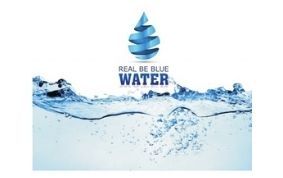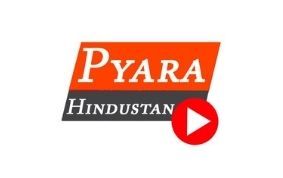What is Cosmetic?
A cosmetic can be said to be any product which can be applied to the human body for cleansing, beautifying, enhancing attractiveness, or altering appearance and such other purposes. In India, a "cosmetic" is defined under the Drugs and Cosmetics Act, 1940, as any article intended for application to the human body or any part thereof for cleansing, beautifying, promoting attractiveness, or altering appearance. This includes any product meant for use as a component of a cosmetic, such as raw materials or adjuvants.
Key points of the definition:
Intended Use: The product must be intended for application to the human body.
Purposes: These include cleansing, beautifying, promoting attractiveness, or altering appearance.
Component Inclusion: Any article intended for use as a component of a cosmetic is also considered a cosmetic.
Categories of Cosmetics
Cosmetic products can be broadly categorised into skincare, haircare, and makeup, with further subdivisions within each. Skincare includes products for face, body, and hands, like cleansers, moisturisers, and sunscreens. Haircare encompasses products for cleansing, styling, and treatment, including shampoos, conditioners, and hair masks. Makeup includes products for enhancing facial features, such as foundation, eyeshadow, and lipstick.
Skincare:
• Face: Cleansers, toners, serums, moisturisers, masks, and sunscreens.
• Body: Lotions, oils, scrubs, and body washes.
• Hands: Hand creams, lotions, and sanitisers.
Haircare:
• Cleansing: Shampoos, conditioners.
• Styling: Styling creams, gels, sprays, and heat protectants.
• Treatment: Hair masks, oils, and serums.
Makeup:
• Face: Foundation, concealer, powder, blush, highlighter, contour.
• Eyes: Eyeshadow, eyeliner, mascara, false eyelashes.
• Lips: Lipstick, lip gloss, lip liner.
• Nails: Nail polish, nail art, cuticle care products.
Cosmetic Manufacturing License
All cosmetic products are only governed and regulated by a statute called as Cosmetic Rules, 2020 in India. Obtaining a Cosmetic manufacturing License is compulsory if you want to legally manufacture and sell cosmetic products in India. For application for granting of Cosmetic Manufacturing License you must fill Form COS-5 and then afterwards the license will be granted on Form COS-9 only. The Cosmetic Manufacturing License is generally issued by the State Licensing Authority (State Drug Controller). This license is not just a regulatory requirement but also it ensures that your products meet safety and quality standards, which ultimately helps in building trust with consumers.
Benefits of Cosmetic Manufacturing License
Legal Compliance: it promotes legality in manufacturing and selling of cosmetic products in India, and avoiding fines and any legal action.
Consumer Trust: It also build credibility and trust with customers by showing that your products comply with safety and quality standards and are for any use as prescribed.
Access to Government Schemes: They are also eligible for government benefits and incentives for registered businesses which ultimately helps them.
Expansion Opportunities: It also gives ability to legally export products and expand into the international markets with a valid license and for growth.
Types of Cosmetic Licenses
Cosmetic Manufacturing License: Businesses that manufacture cosmetic products in India and also includes the importance of compliance with Good Manufacturing Practices (GMP) is an important one.
Cosmetic Import License: For businesses which are looking to import cosmetics from other countries.
Home-Based Business License: Smaller businesses or home-based operations looking to manufacture cosmetics legally can go for this.
Requirements which are essential for obtaining a Cosmetic Manufacturing License
Here is a detailed list of documents which are needed for the application:
Form 31 which is the application form.
Address proof of the manufacturing unit.
Proof of Ownership or rent agreement can also be given for the manufacturing unit.
Layout plan of the unit.
Details of equipment and machinery which will be used.
Proof of qualifications of the Technical Staff employed therein (Pharmacist or Chemist).
Importance of Good Manufacturing Practices (GMP) and also ensuring the manufacturing facility must meet these standards.
Regulations Regarding Cosmetic Manufacturing License in India
People in India both in urban and rural areas use cosmetics for occasions or even in everyday use. Thus, the cosmetic market is vide and also expanding its reach in India as this market has the magic that it will never go into recession. However, if you want to start over a cosmetic business in India, a manufacturer or importer or seller also must comply with the legal requirements as mentioned in the rules. The Drugs and Cosmetics Act, 1940 (the "Act") and the Drugs and Cosmetic Rules, 1945 (the "Rules") are the legal frameworks which deal with such cosmetics licenses and every entity must take license from them before starting their businesses.
Types of Cosmetics Registration in India
There are generally two types of cosmetic registration in India firstly, manufacturing license and secondly, importing license.
1. Manufacturing license
A cosmetics manufacturing license is always necessary for any cosmetic company which is planning to produce or manufacture or import cosmetics. The cosmetics production license is only in value till five years after it is granted once. Some of them are:
License to produce cosmetics for only sale or distribution
According to the rules, a producer must apply for a license from the licensing authority designated by the state government of each state in order to produce cosmetics for sale or distribution.
A manufacturer may submit an application for a license for a maximum of 10 products in each of the cosmetic categories listed in Schedule MII of the statute's regulations. The registration form must be submitted with the Rs. 2,500 licensing fee and the Rs. 1,000 inspection cost for each inspection.
Loan license to produce cosmetics for sale or distribution
As per the regulations, a manufacturer can also submit Form 31-A to the licensing authority assigned by each state government in order to apply for a loan license to create cosmetics for sale or distribution.
A manufacturer may only submit an application for a loan license for 10 products in each of the cosmetic categories listed in Schedule MII of the Rules. The registration form must be submitted with a license cost of Rs. 2,500 and an inspection charge of Rs. 1,000 for each inspection.
License for grant of approval which is used for carrying out tests on cosmetics
According to the Rules, a manufacturer may also be granted permission to test cosmetics and raw materials for use in their production on behalf of licensees in order to make and sell those cosmetics (Form 37). The manufacturer must submit Form 36 to the state licensing authority called as appropriate authority. A 1,500 rupee sum called as inspection fee must be included with the application for the cosmetics testing.
2. Importing license
A license as a cosmetic importer is required when a business imports and resells cosmetics in India without producing them. Importers must apply for a registration certificate from the central licensing authority using Form 42 in order to be granted permission to import cosmetics. The Rules provide that a registration certificate for the importation of cosmetics into India from foreign nations is issued using Form 43.
Cosmetic company requires an application fee of $250 USD, or its equivalent in Indian rupees. After it is issued, the registration certificate (Form 43) is good for three years.
A manufacturer must be having his registered office situated in India only
An authorised agent of the manufacturer
A subsidiary of the manufacturer
Any other importer
Documents Required for Cosmetic Manufacturing License
Declaration form
Blueprint of key and site plan
Ownership proof of the manufacturing premises
Proof of registration/constitution of the firm
A declaration that a partner, proprietor, or director is not guilty of any Act
An official replica of the pharmacy organisation of India's registration certificate, a certified pharmacist's experience certificate, or the certificates of eligibility of any other qualified or competent individual are required.
Bio-data form
Affidavit of a registered pharmacist or any such competent person about full time working with the entity duly attested by a Notary public is mandatory and their appointment letter.
Download the PDF of the filled application form which are Form 31, 31-A or 36.
Procedure for Obtaining a Cosmetic Manufacturing License
The applicant must register on the SUGAM site, fill out the online application form (often found in Form COS-5 or COS-6), provide all necessary documentation, and pay the necessary fees in order to be granted a license to manufacture cosmetics. After inspecting the property, the State Licensing Authority (SLA) will issue the license if it is in compliance.
Steps for obtaining a cosmetic manufacturing license:
Firstly, it must be Registered on the portal called as SUGAM portal and create an ID.
Application: Complete the online application form (e.g., Form COS-5 or COS-6) and submit it through the SLA online portal or the SLA office.
Document Submission: Ensure all required documents are submitted, as specified in the relevant schedules of the Cosmetic Rules.
Payment: Pay the applicable fees.
Premises Inspection: The SLA will inspect the manufacturing premises to ensure compliance with Good Manufacturing Practices (GMP).
License Granting: If the premises meet the requirements, the SLA will grant the license within 45 days.
Compliance: Ensure that the manufacturing facility and processes meet the standards outlined in the Cosmetic Rules.
Why eStartIndia for Cosmetic Manufacturing License?
It may be difficult to navigate the cosmetic manufacturing licensing procedure, and one error might cause your firm to operate more slowly. We at eStartIndia provide end-to-end support:
State-Specific Advice: We make sure your application complies with the rules set forth by the Drug Control Authority in your state.
Document Preparation: To guarantee your application is correct and comprehensive, our professionals help gather and validate all required documentation.
GMP Compliance Support: To lower the chance of inspection failures, we offer advice and tools for establishing a manufacturing facility that complies with GMP.
Post-License Support: We provide continuing compliance services to assist you in managing inspections, renewing licenses, and staying current with rules.






































